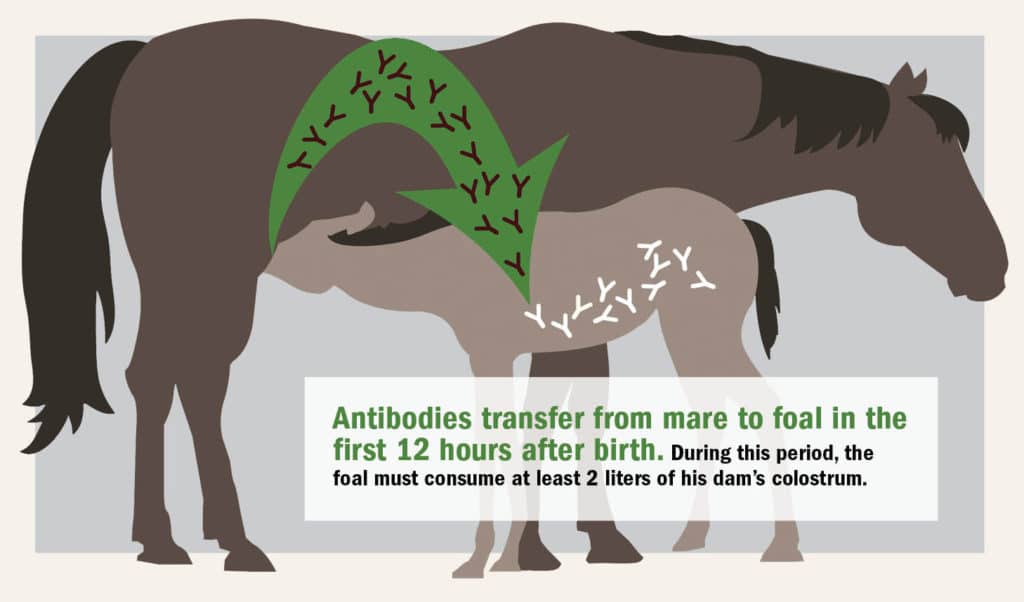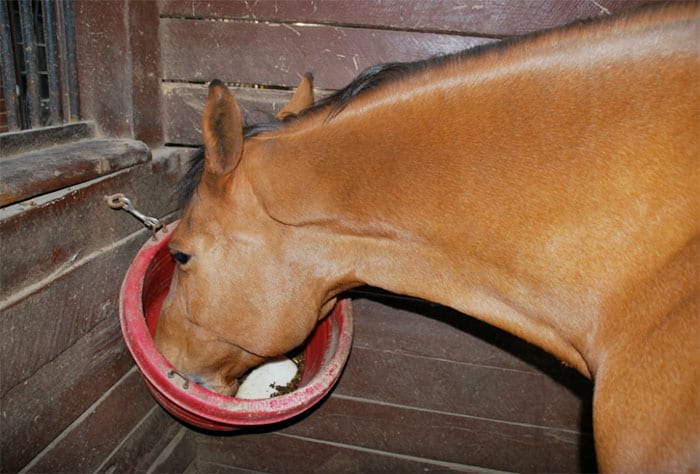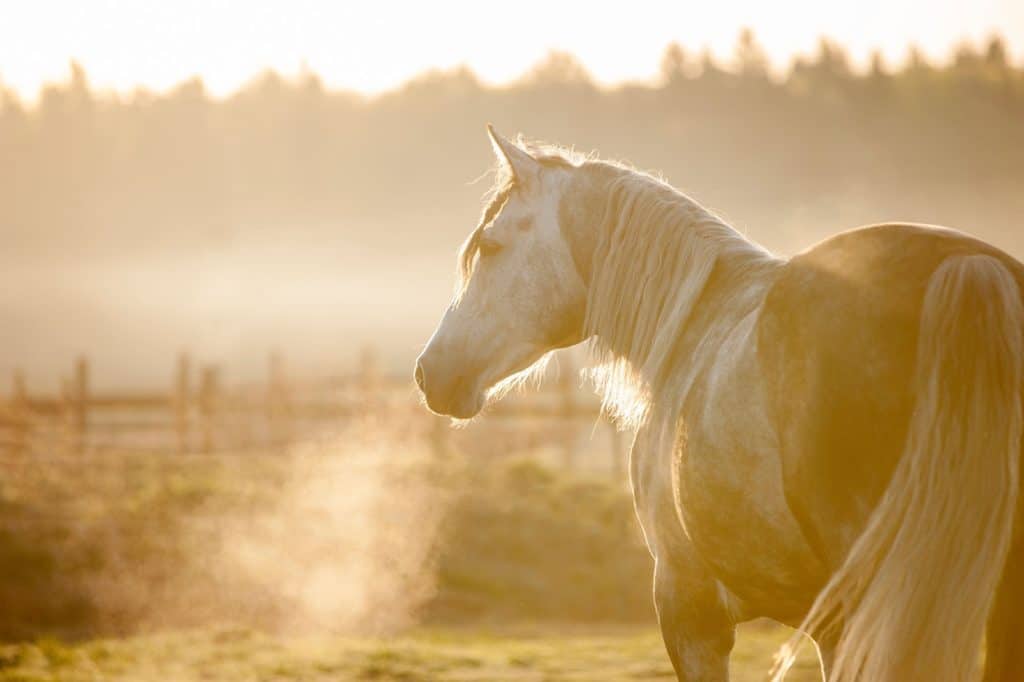
For Good Endurance in Horses, Feed for the Right Gut Bacteria
A French study is the first to connect the gut microbiota with the mitochondria in horses, or any other species.

A French study is the first to connect the gut microbiota with the mitochondria in horses, or any other species.

Hospitalized geriatric horses that recovered from severe colitis showed positive changes in their gut microbiota after receiving diluted feces from healthy horse donors.

Researchers used CT scan and microscopic exam to characterize anatomical findings of the lumbosacral spine and document any damage or disease.

Researchers confirmed using resistance band systems, balance pads, and dynamic mobilization can help improve spinal muscle characteristics and postural stability.

Approximately 5-20% of newborn foals are diagnosed with failure of passive transfer and are at risk for developing serious medical conditions. Learn more in this visual guide.

Owning a horse over his lifetime can be rewarding, but you need to be prepared for specific costs related to his care. Learn about senior horse research studies and what veterinarians say you should watch for as your horse ages.

Dietary deficiency of vitamin E can lead to three specific neurologic and muscular diseases. Find out if your horse is getting enough.

An equine nutritionist reviews what we know about the horse’s immune system and the potential to enhance disease resistance through diet.

Researchers say progressive changes in diets lead to healthier microbiomes and fewer digestive issues, such as diarrhea and colic.

Read about the existing science behind acupuncture and what you should know before scheduling an appointment for your horse.

Showing, training, traveling, or even lifestyle changes can put your horse under stress that risks his health. The right nutritional choices can support his immune system, GI tract, and overall well-being. Learn how.

Sweet PDZ Horse Stall Refresher and The Horse have partnered for Respiratory Health Awareness Week, held Oct. 26-Nov. 1.

Dr. Amanda Adams of the University of Kentucky, in Lexington, describes her senior horse research, which focuses on EMS, PPID, and immune system health.

If your horse survives one of these five infections, he might still suffer lasting effects. Learn which diseases most commonly cause post-infection illnesses and how they can impact a horse’s long-term health, use, and quality of life.

British researchers reviewed more than 150 equine microbiome studies. From colic to laminitis to pregnancy, here’s what they found.

Vitamin E serves as one of the body’s most potent antioxidants, protecting various cells—including those of the immune system—from the harmful effects of free radicals.
Stay on top of the most recent Horse Health news with
"*" indicates required fields